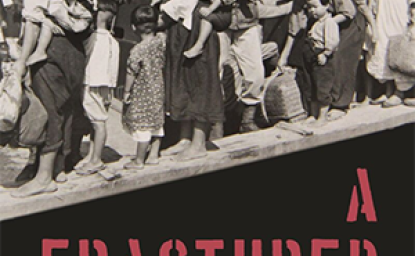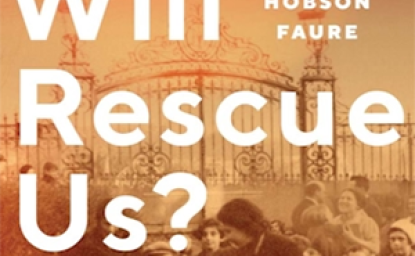230. Ethnicity in Exile: Coping with the Yugoslavs in World War II

The Nazi invasion of Yugoslavia in April 1941, resulted in the replacement of a unified state by a puppet regime in Serbia and an ideologically-fascist Independent State of Croatia under the Ustasa regime. This regime claimed for Croatia most of the ethnically mixed Bosnia-Herzegovina as well as the Serb-dominated eastern Slavonia and Krajina. To cleanse those areas of ethnic Serbs, the Ustasa committed atrocities, the brutality of which was most potently symbolized by the death camp at Jasenovac, later to also become symbol for Yugoslavia's 1990s disintegration. Until recently, however, most historical inquiry into World War II Yugoslavia has focused on the civil war between Tito's communist Partisans and Draza Mihailovic's Serb-dominated Cetniks. The royal government-in-exile, based in London, appointed Mihailovic war minister in January 1942, and considered the Cetniks its representative in Yugoslavia. A historical issue that has not been sufficiently examined is the British relationship with the government-in exile during the war and how that relationship prompted the British to lead the Allies into switching support from Mihailovic to Tito.
An examination of the Yugoslav government-in-exile during World War II reveals the extent to which ethnic tensions between Serbs and Croats determined Tito's ultimate rise to power. Serb-Croat tension within the government-in-exile destroyed its legitimacy as the legal government of Yugoslavia to such an extent that the British looked for an alternative leadership for the postwar period. To the British, regional stability in the Balkans remained of paramount importance. British strategic interests required strong Balkan states, anchored by a stable Yugoslavia. The problems of the exiles greatly influenced Allied thinking toward the Yugoslav resistance. The ethnic disputes between Serbs and Croats in the government-in-exile also confirmed longstanding British prejudices about Balkan politicians and facilitated the ease with which London switched its support to the communist Partisans.
From the founding of the Kingdom of Serbs, Croats, and Slovenes in 1918, through the establishment of the royal dictatorship, to the reemergence of a parliamentary government, the Serb-Croat dispute dominated Yugoslav politics. From the Croats' point of view, the Serbs sought to exploit their status as the largest ethnic group in order to transform Yugoslavia into a greater Serbia. The Serbs on the other hand, believed that the Croats aimed to undermine the cohesion needed in a unified state. While this domestic turmoil operated within a tense European climate throughout the interwar period, the border changes that began with the Anschluss and Munich Agreement in 1938, intensified the pressures on Prince Paul, regent for the young King Peter, to solve the fundamental Serb-Croat breach. Yugoslavia's future was at stake. Paul's efforts to solve the "Croatian question" resulted in the Sporazum (Agreement) of August 1939. Though Western observers viewed the document as a step in the right direction, despite its imperfections, the Sporazum solved little other than to preliminarily delineate new Croatian borders and list a set of principles. It created a federal solution for the Croats while maintaining a centralized state for other ethnic minorities in Yugoslavia. That arrangement not only prompted the Slovenes and Bosnian Muslims to clamor for similar accommodation, but provoked the Serbs to begin talk of the "Serbian question." Fundamentally, the Croats viewed the Sporazum as a basis for reform while the Serbs considered it a final concession.
The Yugoslavs' inability to resolve their ethnic disputes paralyzed them in the international arena as war spread across Europe. They tried to maintain neutrality toward the Allies and the Axis alike, but pleased neither side. Under intense pressure from the Nazis during the spring of 1941, Prince Paul signed the Tripartite Pact to stave off an invasion. A British backed coup d'etat in March 1941, aimed to reverse Paul's decision to sign the pact. When the Axis invaded Yugoslavia in April 1941 and the government fled into exile, the fundamental dispute between the Serbs and Croats over the Sporazum followed them to London. Against this backdrop, the government-in-exile's inability to solve any subsequent dispute decreased its effectiveness. To complicate matters, the cabinet operated on unanimous not majority decision-making. On most matters, the cabinet split along ethnic lines with the Serbs on one side, the Croats on the other, and the Slovenes in the middle. The ministers proved unable to agree on the ethnic background of a diplomatic appointment, publish a joint statement on internal policy, or cope with the serious implications arising from the Ustasa's persecution of Serbs in the Independent State of Croatia. Regardless of the level of seriousness involved, to the Yugoslav factions, compromising on any dispute amounted to a major concession that could effect the overall balance between the Serbs and Croats in postwar Yugoslavia. The Croats feared giving in would lead to a permanent abolition of the Sporazum, the Serbs, the destruction of a Yugoslav state.
To the British, the government-in-exile's internal bickering seemed petty. Within months of the Yugoslav cabinet's arrival in London, the British decided to explore an alternative postwar leadership for Yugoslavia. The Foreign Office also decided to intervene directly to heal the inherent Serb-Croat tensions. Efforts to manage the fallout from the Ustasa massacres of Serbs, coordinate a declaration on internal policy that outlined a common sense of purpose, or place a diplomatic appointment into proper perspective foundered on ethnic divisions in the Yugoslav cabinet. British efforts to mold the young and impressionable King Peter into a proper monarch also failed to produce the desired results. The process of stabilizing both the monarchy and the cabinet also clashed at inopportune times and made reform of each institution seem impossible. The royal romance between King Peter and Princess Alexandra of Greece helped bring down the government-in-exile twice in the summer of 1943, leading to one last British attempt to maintain the Yugoslav cabinet by reducing its size and moving it to Cairo. Three years of trying to ease Serb-Croat disputes had convinced the British that the political elites, many of whom predated the creation of Yugoslavia, were not the best candidates for leading a stable, multiethnic postwar Yugoslavia. The exiled politicians knew little of how to build a coalition between divergent viewpoints.
The inability of the government-in-exile to function, therefore, helps to explain more fully the Allied decision, led by the British, to back Tito over Mihailovic in late 1943. An abundance of credible evidence worked against Mihailovic in the decision to end support for him. British officials came to resent the effect of Mihailovic's increasingly pan-Serb rhetoric through which he obstructed rather than facilitated Yugoslav unity. In his vitriol against internal enemies, Mihailovic made foolish decisions. The Cetnik leader also admitted to working with the Italians, particularly when he could gain advantage against the Partisans. Some of his lieutenants also collaborated openly with the Germans. Whether Mihailovic approved, or even knew, of those actions remained irrelevant to the British. If he did not personally collaborate with the Nazis, his approval of other Cetniks doing so condemned him indirectly. Alternatively, if he knew nothing of the collaboration, that illustrated his lack of authority over the Cetnik movement. The British never had decisive proof about his alleged collaboration with the Germans. When the British made the decision to abandon Mihailovic because he represented an obstacle to progress, the Foreign Office used the controversy over his alleged collaboration as a public relations ploy to justify its decision.
In contrast to Mihailovic, Tito offered attractive reasons to support the Partisan movement. More important than his apparently greater anti-Axis activity, Tito seemed to possess an ability to defuse Serb-Croat tensions. His rhetoric avoided references to the ethnic disputes that had plagued the country during its twenty-year existence. Tito moved the dialogue away from ethnic identity. He offered leadership that promoted a multiethnic Yugoslavia, one that had a better chance of promoting internal as well as regional stability in the postwar Balkans. That Tito's Yugoslavia would be communist was of secondary importance to London. The British, at first, thought that they could assert some influence over the Yugoslav communist movement, particularly if they could build a coalition between Peter and any "untainted" exiles. By the time it was clear that Tito remained impervious to British influence, however, other geopolitical issues helped justify acquiescence of Tito's creation of a communist state. The division of Trieste and its environs from 1945 on, was a more pressing matter for the British than Tito's oppressive political tactics. The British also decided that, in the emerging Cold War with the Soviet Union, their interests in the Balkan region lay more with Greece and Turkey.
Did the politics of ethnic discord, then, undermine the legitimacy of the government- in-exile to such an extent that supporting a communist appeared the more stable path? For the British, the answer was yes. The fundamental Serb-Croat breach in the cabinet over the role of the Sporazum in the restructuring of Yugoslavia overshadowed every dispute, whether major or minor, that emerged. The British came to realize that the Croats viewed any concession to the Serbs as a green light to revoke Croatian autonomy after the war. Even moderate Serbs, willing to cooperate with the Croats, thought that the Sporazum had been a mistake. Furthermore, for the Serbs, the exiled Croats' reluctance to accept any moral responsibility for the Ustasa's persecution of Serbs represented the height of callousness and lingered in their collective mind when facing any subsequent dispute.
The ethnic tension in the government-in-exile, as paralyzing as it was, should nevertheless not lead one to conclude that Yugoslavia was a mistake. The kingdom had emerged out of World War I when the map of Europe changed more dramatically than anyone had envisioned. The interwar period was a time of great political, economic, and social instability in independent eastern Europe. The shock of World War II created another set of conditions with which Yugoslavs could not effectively cope. The Sporazum, though imperfect, represented an attempt to end obstructionist politics and build a multiethnic society. Though neither the Serbs nor the Croats could compromise easily, many politicians on both sides favored a "Yugoslavia," realizing that a united country would have a better chance to survive. The Ustasa atrocities against the Serbs represented not the norm, but rather the exception, to the course of Serb-Croat relations, and they cannot be disentangled from the Nazi atmosphere. Much of the problem with the government-in-exile in London and the young King Peter resulted from immaturity, either in the political sense, regarding the cabinet, or the social and intellectual development of the monarch. Circumstances did not afford them the luxury of working things out slowly. Tito, on the other hand, represented a viable alternative as one who had experienced occupation with the people. He changed the tone of discussion in Yugoslavia. Perhaps he was not the best alternative leader for whom the British had hoped, but he was the best option available.
Laurie West Van Hook spoke at an EES Discussion on March 14, 2001. The above is a summary of her presentation. Meeting Report #230.
Author

Global Europe Program
The Global Europe Program is focused on Europe’s capabilities, and how it engages on critical global issues. We investigate European approaches to critical global issues. We examine Europe’s relations with Russia and Eurasia, China and the Indo-Pacific, the Middle East and Africa. Our initiatives include “Ukraine in Europe”—an examination of what it will take to make Ukraine’s European future a reality. But we also examine the role of NATO, the European Union and the OSCE, Europe’s energy security, transatlantic trade disputes, and challenges to democracy. The Global Europe Program’s staff, scholars-in-residence, and Global Fellows participate in seminars, policy study groups, and international conferences to provide analytical recommendations to policy makers and the media. Read more




